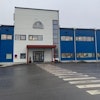The European Feed Technology Center released its Vision and its Strategic Research & Innovation Agenda. This document highlights the key role of animal nutrition in conjunction with genetics and animal health to tackle the three key challenges faced by the European Union livestock sector within the next 20 years:
- Optimization of nutrient resource efficiency
- Healthy animals for healthy humans
- Socially responsible livestock farming
It sets targets for improvement in these three areas and identifies the priority Research and Innovation needs to meet these targets.
The center’s chairwoman, Mia Eeckhout, from the Gent Feed Technology Center, Belgium, said “The livestock sector shall produce tomorrow more with less while guaranteeing a high level of safety and quality. This may only be achieved if sufficient resources are allocated to research, in particular animal nutrition. Among the various disciplines of livestock science, which also includes animal breeding and animal health, only the Strategic Research and Innovation Agenda of the animal nutrition sector was missing. I’m proud to announce that this gap is now filled thanks to the commitment of both the feed knowledge providers and the feed industry.”
Patrick Vanden Avenne, president of the European Feed Manufacturers’ Federation, stressed that, “Most of the challenges for the livestock sector have a clear feed dimension:
- 'Resource efficiency' in the livestock sector is about how to convert feed resources in the most efficient way.
- 'Healthy animals' is about how to feed nutrients to animals under optimal management to resist disease.
- 'Socially responsible livestock farming' from a nutrition perspective is how to minimize the negative impact of livestock farming on the environment through e.g. precision feeding and GHG mitigation strategies, taking into consideration the existing legal standards on e.g. animal welfare.
"The first way to address these challenges is to transfer knowledge into practical solutions for the farmers in order to optimize their ability to deliver against the objectives," Vanden Avenne continued. "Raising the efficiency of less efficient farmers to the level of the best must be a primary target. The second way to address the challenges is to develop innovative technological solutions to improve knowledge further, for example, the nutritional interaction with, and between, other factors such as genetics, animal health & animal welfare, environmental footprint, etc. This vision shared by the EU feed industry as a whole is the cornerstone of the Center’s Strategic Research and Innovation Agenda."
Eeckhout added that “investment in research and innovation in the animal nutrition sector has shown its efficiency overtime. The agenda illustrates the huge progress that shall and can still be achieved to allow the livestock sector to improve its sustainability and resilience. Existing synergies between all stakeholders of the livestock chain is so that progress in one sector can be enhanced via expanding know how and experience in other sectors.”
The 12-page “Vision and Research & Innovation Agenda” can be downloaded at www.eufetec.eu.

















